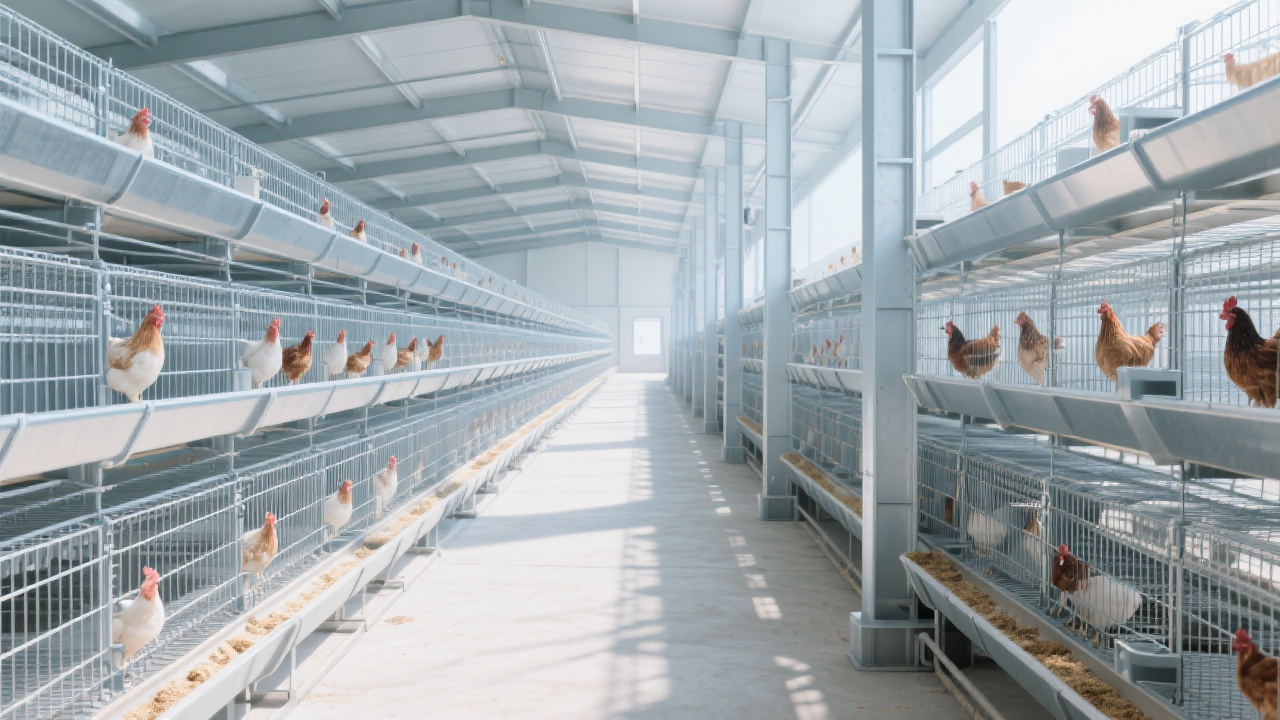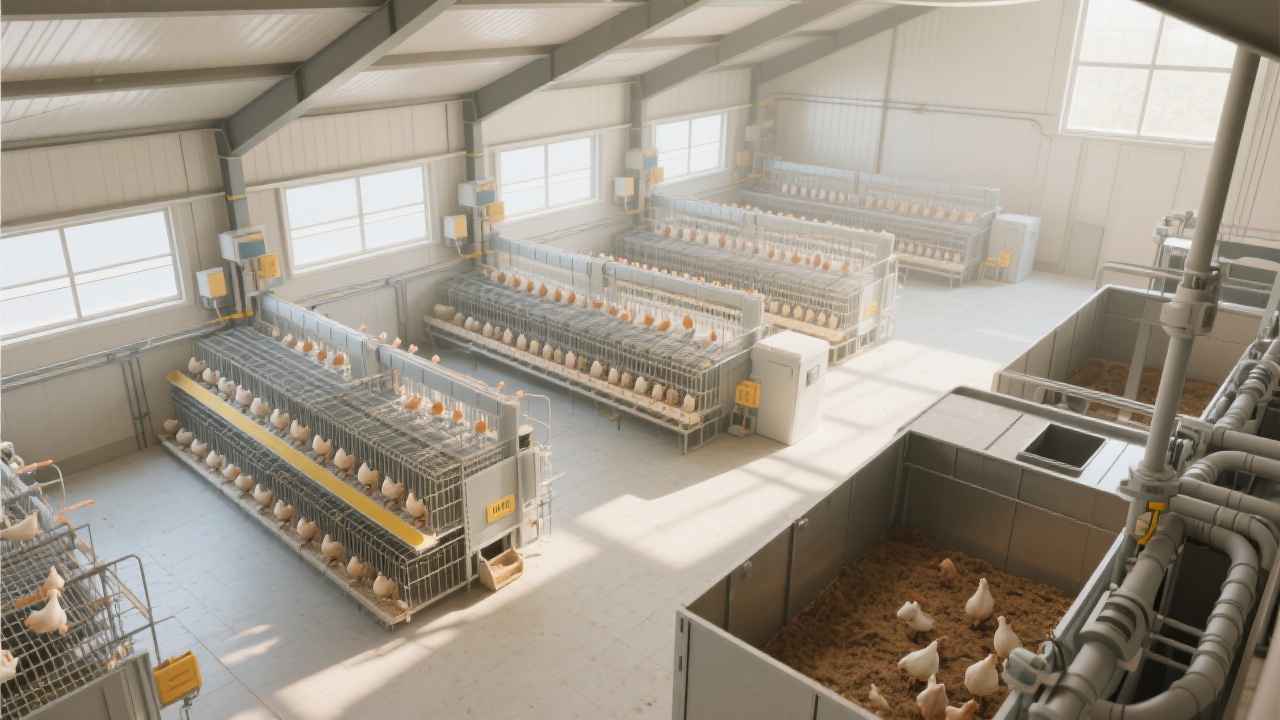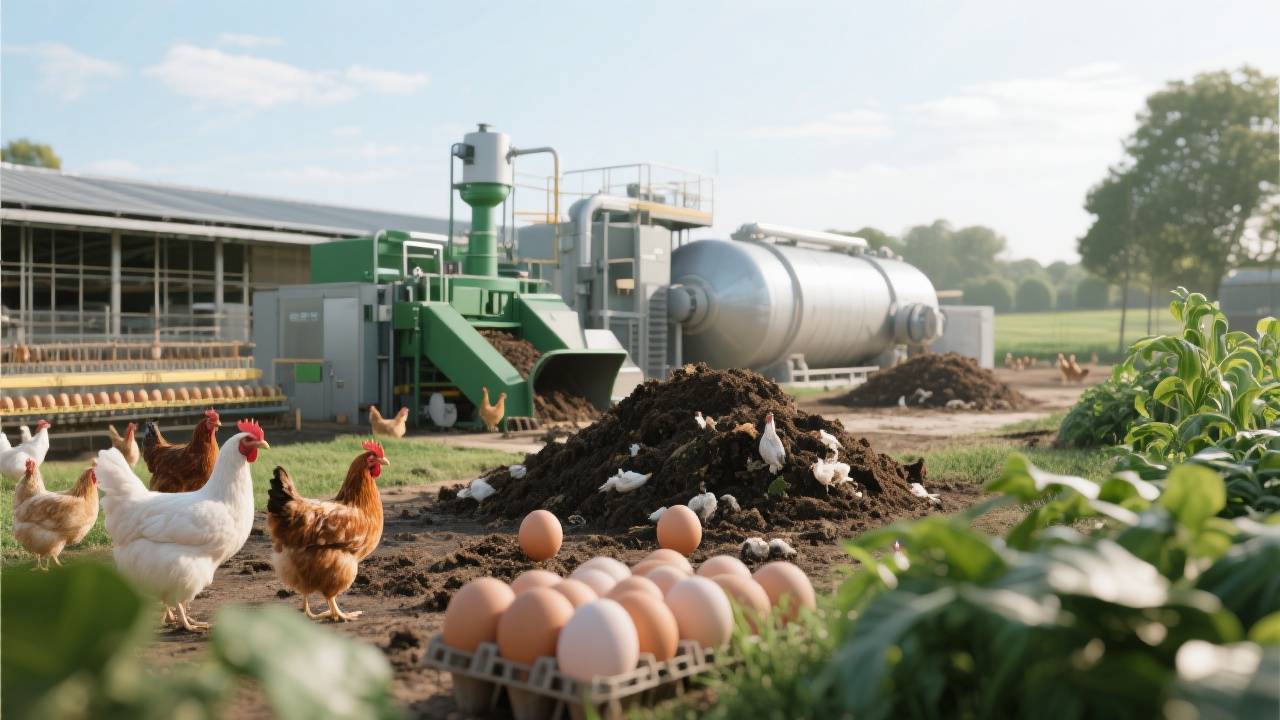
In the realm of laying hen farming, manure cleaning poses significant challenges. The accumulation of manure not only affects the health of the chickens but also has a detrimental impact on the environment. Ammonia, a by - product of manure decomposition, can reach dangerous levels in the chicken coop. High ammonia concentrations can cause respiratory problems in chickens, reducing their immunity and increasing the risk of diseases. Moreover, the improper disposal of manure can lead to soil and water pollution.

When it comes to manure cleaning systems, two common types are the scraper system and the screw conveyor system. The scraper system is suitable for small - to medium - sized farms. It has relatively simple operation but may have limitations in energy efficiency. On average, a scraper system consumes about 15 - 20 kWh of electricity per day for a farm with 10,000 laying hens.
In contrast, the screw conveyor system is more energy - efficient, consuming only about 10 - 15 kWh of electricity per day for the same - sized farm. It is also more adaptable to large - scale farms, where the volume of manure is higher. The following table provides a clear comparison of their energy consumption and applicable scenarios:
| System Type | Applicable Farm Size | Daily Energy Consumption (10,000 hens) |
|---|---|---|
| Scraper System | Small - to Medium - sized | 15 - 20 kWh |
| Screw Conveyor System | Large - scale | 10 - 15 kWh |
The screw conveyor manure cleaning technology operates on a simple yet effective principle. A rotating screw conveys the manure from the chicken coop to a collection point. This technology has a unique advantage when combined with H - type chicken cages. The structure of H - type chicken cages allows the screw conveyor to access every corner of the coop, ensuring a thorough cleaning. The screw can be adjusted according to the height and layout of the H - type cages, achieving a seamless fit and efficient manure removal.

In a large - scale laying hen farm in the Midwest of the United States, the implementation of the screw conveyor manure cleaning system has brought remarkable results. Before using the system, the farm often faced problems of ammonia超标 and disease outbreaks due to manure accumulation. After the installation of the screw conveyor system, the ammonia level in the coop decreased by 30% within a month. The incidence of respiratory diseases in chickens also dropped by 25%, leading to a significant improvement in chicken health and egg production.
The screw conveyor manure cleaning system is in line with the ISO 14001 environmental management system. This system promotes the proper management of waste and the efficient use of resources. By using the screw conveyor system, the manure can be collected and processed in a more organized way. For example, the collected manure can be used to produce organic fertilizers. On average, a farm with 10,000 laying hens can produce about 2 - 3 tons of organic fertilizer per month, which can be sold in the market, bringing additional income to the farm.

In recent years, governments around the world have introduced more stringent environmental policies for the livestock industry. For example, in the European Union, farms are required to comply with strict manure management regulations. At the same time, consumers are becoming more concerned about the safety and environmental - friendliness of food products. They are more likely to choose eggs from farms that adopt environmentally - friendly farming practices. These trends are driving the laying hen farming industry to adopt more advanced manure cleaning technologies like the screw conveyor system.
If you are interested in learning more about how the screw conveyor manure cleaning system can transform your laying hen farm, click here for further consultation.

